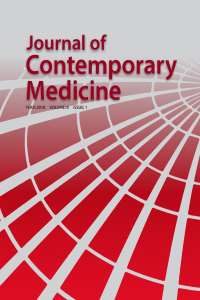Simülasyon Hazırlığında Ön Araştırma, Klinik Yargı ve Yansıtıcı Süreç
Amaç: Öğretim üyesi ve öğrencilerin simulasyona ne kadar iyi hazırlandığı hakkında gelişmekte olan kanıtlarına ek olaraksimülasyon kullanılarak klinik karar ve yansımalarının nasıl geliştirileceği araştırılması gereken bir alandır. Simülasyonun etkili bir öğrenme stratejisi olduğu ispatlanmıştır. Optimum öğrenme çıktılarını elde etmek için en iyi uygulamaları bir araya getirmede ilerleme gereksinimi hala sürmaktedir. Materyal ve Metod: Üçgenlenmiş değerlendirme pilot çalışmada veri toplamada Survey Monkey(online anket) kullanıldı. Yedi öğrenci ve 4 eğitimci örnek olarak alındı. Bulgular: Tüm katılımcılar brifing öncesi hazırlık malzemeleri ile daha hazırlıklı hissettiler. Öğrenciler hasta bakımına katılmak için hemşirelik eylem kursunda karar ve etkili cevap için yeterli anlama ile simülasyon deneyimini daha iyi kavramak zorunda olduklarını hissettiler. Eğitimciler simülasyonu etkili bir şekilde kolaylaştırmak için ek bilgiler ile daha iyi hazırlanmış olduklarını hissettiler. Sonuç: Daha sonraki gelişmiş klinik yargı ve yansıtıcı uygulamalarda hazırlık materyalleri simülasyon deneyimini arttırır. Simülasyon hemşirelik öğrencilerinin sürekli eğitiminde esastır. Öğretim görevlileri ve simülasyon için öğrencilerin hazırlanmasında sonuçları geliştirir.
Preliminary Exploration of Simulation Preparation, Clinical Judgment and Reflective Process
Objective: How are clinical judgment and reflection enhanced with use of simulation is an area that requires exploration in addition to developing evidence about how best to prepare faculty and students for simulation. Simulation has proven to be an effective teaching strategy. Incorporating best practices to achieve optimal learning outcomes continues to require development. Methods: Triangulated evaluatory pilot study utilizing Survey Monkey for data collection. Seven students and 4 educators provided the convenience sample. Results: All participants felt more prepared with the prebriefing preparatory material. Students felt they had a better grasp of the simulation experience with sufficient understanding to respond effectively and decide on a course of nursing action to participate in patient care. Instructors felt more prepared with the additional information to effectively facilitate the simulation. Conclusions: Preparatory material enhanced simulation experience which further augmented clinical judgment and reflective practice. Simulation is essential to continued education of nursing students, preparing faculty and students for simulation improves outcomes.
